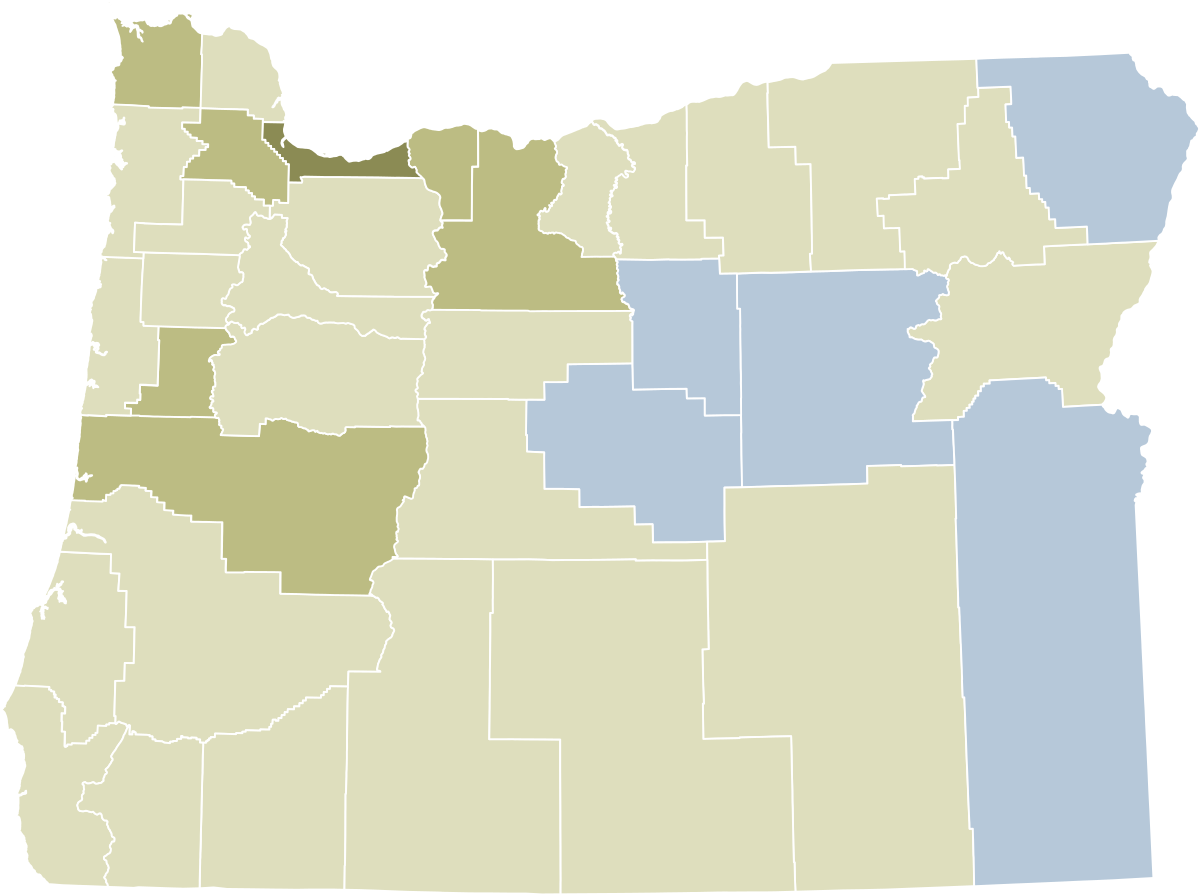Yes 673,296 Total votes 1,743,978 | No 1,070,682 1,743,978 100.00% | |
 | ||
673,296 7001386100000000000♠38.61% 1,070,682 7001613900000000000♠61.39% | ||
Oregon Ballot Measure 60 was an initiated state statute ballot measure filed by Bill Sizemore and R. Russell Walker. Sizemore referred to it the "Kids First Act." The measure appeared on the November 4, 2008 general election ballot in Oregon.
Contents
- Newspaper Endorsements
- Specific provisions in the initiative
- Estimated fiscal impact
- Supporters
- Arguments in favor of Measure 60
- Opposition
- Arguments against Measure 60
- Donors opposing Measure 60
- Petition drive history
- References
The goal of the initiative was to create a new Oregon state statute mandating that only "classroom performance" — not seniority, additional duties, qualifications, advanced degrees, or additional training — would determine teachers' pay raises. It would also mandate that the "most qualified" teachers be retained under employment, replacing seniority as a major consideration. "Classroom performance" and "most qualified" are not defined by the measure.
This is the second time Sizemore has placed a similar measure on the ballot. Measure 95 in 2000 was defeated 65–35.
The official ballot title for Measure 60 was: Teacher "classroom performance", not seniority, determines pay raises; "most qualified" teachers retained, regardless of seniority.
Newspaper Endorsements
Here is how Oregon's major newspapers have endorsed on the measure:
Specific provisions in the initiative
The language of the proposed statute is:
Note: "Classroom performance" and "most qualified" are not defined in the measure.
Estimated fiscal impact
The state's Financial Estimate Committee prepares estimated fiscal impact statements for any ballot measures that will appear on the ballot. The estimate prepared by this committee for Measure 60 says:
Supporters
Preserve Our Best Teachers was the name of the committee sponsoring the original initiative. There is no committee filed to support the ballot measure.
The Oregonian reported in September 2007 that Nevada millionaire Loren Parks was the leading contributor to Measure 60.
Randall J. Pozdena, Ph.D., of the Cascade Policy Institute, authored a commentary that argued, "Absent serious structural reforms such as school-level competition, paying for performance in the classroom may be the best way to stimulate higher academic achievement among our K-12 public school students."
Arguments in favor of Measure 60
Opposition
Measure 60 is opposed by the Parents and Teachers Know Better Coalition, which describes itself as "a broad coalition of parents, teachers, and school advocates who care about Oregon's students & schools." The Parents and Teachers Know Better campaign is part of the Defend Oregon Coalition, which opposes all five of the ballot initiatives on the 2008 ballot measures that are sponsored by Sizemore.
Members of the coalition include Stand for Children, Oregon PTA, United Way of the Mid-Willamette Valley, Oregon Education Association, American Federation of Teachers-Oregon, Oregon School Employees Association, and the Human Services Coalition of Oregon, among others.
Arguments against Measure 60
Notable arguments made against Measure 60 include:
Donors opposing Measure 60
Defend Oregon, as a committee, is fighting seven different ballot measures, and supporting two others. Altogether, the group has raised over $6 million in 2008.
Major donations to the Defend Oregon group as of October 8 include:
Petition drive history
Initiative Petition 20 was originally approved for circulation on August 30, 2006, and the signatures were turned in in July. 83,724 signatures were found to be valid of those submitted, versus a qualification threshold of 82,769.
A union-funded watchdog group asked the Oregon Secretary of State to conduct an investigation into how some of the signatures on the measure were collected. Bill Bradbury, the Secretary of State has said, "...most all of the initiatives Oregon voters will decide this fall got there through practices that are now illegal. But those practices were legal at the time most of the signatures were submitted." The state Elections Division is currently investigating the charges.
